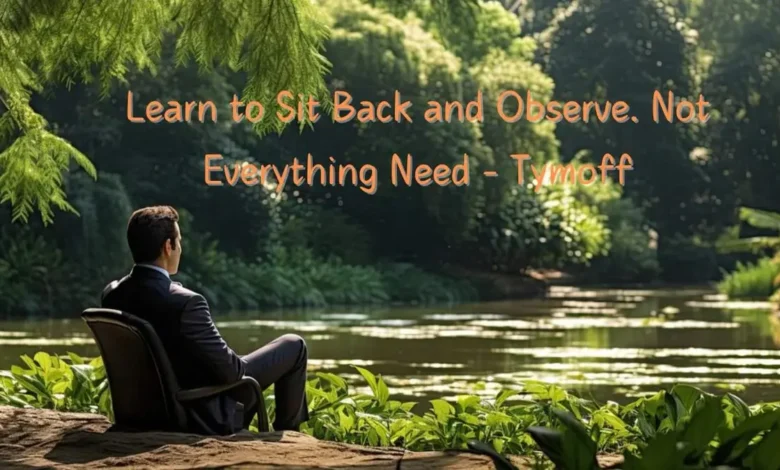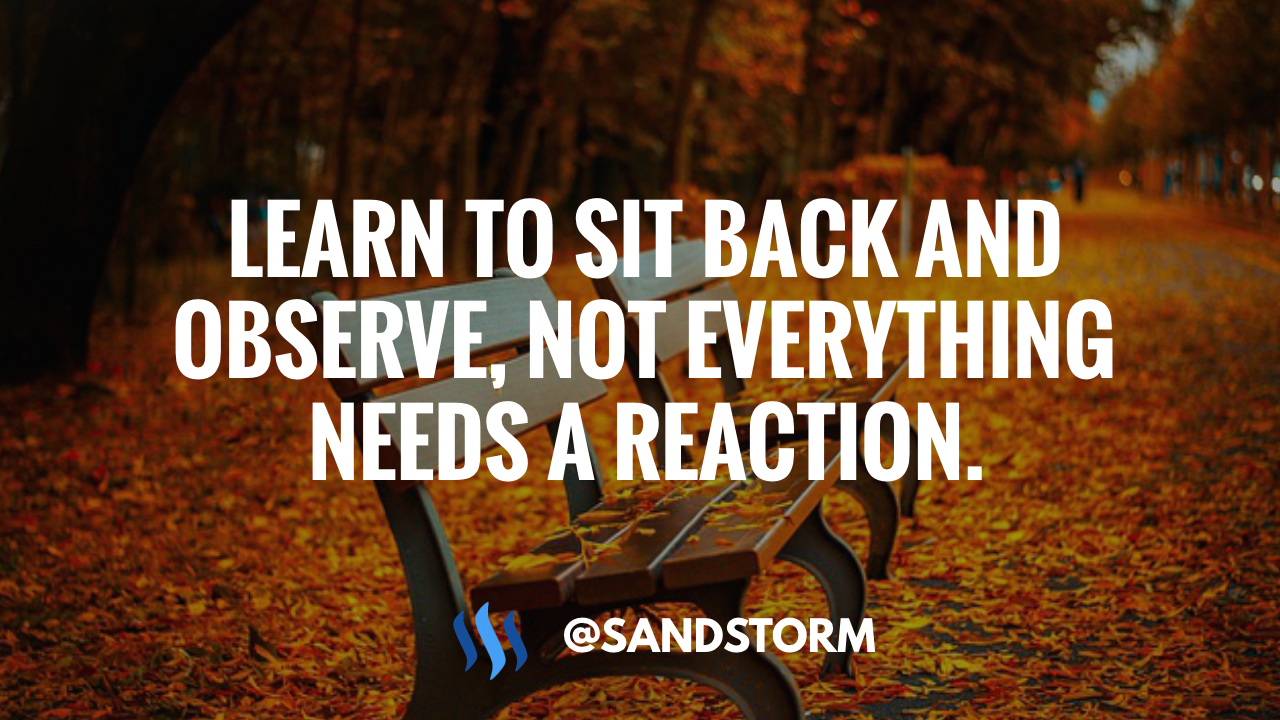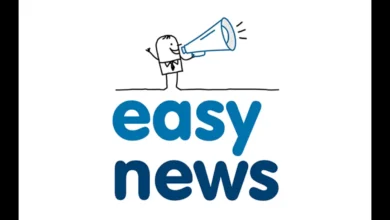
In our fast-paced, digitally driven world, we’re constantly bombarded with stimuli. Social media notifications ping, and emails flood our inboxes, and the pressure to react instantly feels overwhelming. This conditioned state of hyper-reactivity can be detrimental to our well-being and hinder our ability to make sound decisions. Cultivating the art of non-reactivity, where we consciously choose how we respond rather than impulsively react, is a crucial skill for navigating life’s complexities.
The Detriments of Reactivity
Reactivity is often fueled by our amygdala, the brain’s primal fear center. When triggered, it throws us into a fight-or-flight state, releasing a surge of stress hormones like cortisol. This can lead to:
- Poor decision-making: Reacting hastily can cloud our judgment and cause us to overlook crucial information.
- Emotional dysregulation: Reactivity can exacerbate feelings of anger, anxiety, and frustration.
- Strained relationships: Our impulsive responses can damage our interactions with colleagues, loved ones, and friends.
- Reduced productivity: Constant emotional upheaval takes a toll on our ability to focus and complete tasks efficiently.
Embracing the Power of Observation
Non-reactivity doesn’t equate to apathy or indifference. Learn To Sit Back And Observe. Not Everything Need – Tymof f It’s about stepping back, taking a breath, and observing a situation before we choose how to respond. This allows us to:
- Gain perspective: By detaching ourselves emotionally, we can see the bigger picture and identify the root cause of an issue.
- Manage emotions: Observing our emotions helps us understand their triggers and develop healthier coping mechanisms.
- Respond thoughtfully: We can craft measured responses that address the situation effectively.
- Promote mindfulness: Non-reactivity fosters a sense of calm and present-moment awareness, enhancing our overall well-being.
Cultivating the Art of Non-Reactivity: Practical Strategies
Developing non-reactivity is a journey, not a destination. Here are some practical strategies to integrate it into your daily life:
- Mindfulness practice: Techniques like meditation and deep breathing can train your mind to focus on the present moment and detach from emotional triggers.
- Recognize your triggers: Identify situations, people, or events that typically evoke reactive responses in you.
- Create space: Before reacting, take a physical or mental step back. Excuse yourself from a conversation, take a walk, or simply close your eyes for a few seconds.
- Label your emotions: Acknowledge your feelings without judgment. Notice “I feel angry,” “I feel frustrated,” instead of letting those emotions control your actions.
- Reframe your perspective: Ask yourself, “Is this situation worth expending emotional energy on?” “What’s the bigger picture here?”
- Develop healthy coping mechanisms: Replace reactive behaviors with healthier outlets like exercise, journaling, or creative pursuits.
Non-Reactivity in Action: Everyday Examples
Imagine you receive a critical email from a colleague. Tymoff The reactive response might be to fire off a defensive reply fueled by anger. The non-reactive response involves taking a deep breath, identifying the emotional trigger, and perhaps replying later with a well-construed email that addresses the concerns raised.
In a social setting, someone might make a comment that rubs you the wrong way. Reacting with sarcasm or anger can escalate the situation. Non-reactivity allows you to process the comment, understand the speaker’s intent, and respond calmly or choose to simply disengage from the conversation.
The Benefits of Non-Reactivity Extend Beyond the Individual
By cultivating non-reactivity, we contribute to building a more positive and productive environment, both personally and professionally. Here’s how:
- Improved communication: When we respond thoughtfully, we foster clearer communication and reduce the likelihood of misunderstandings.
- Stronger relationships: Non-reactive responses minimize conflict and promote empathy and understanding in our interactions with others.
- Enhanced emotional intelligence: By managing our own emotions, we become more adept at reading the emotions of others, fostering deeper connections.
- Reduced stress and anxiety: Reacting less impulsively contributes to a calmer, more centered state of mind.
- Greater resilience: Non-reactivity allows us to navigate challenges with composure and bounce back from setbacks more effectively.
In conclusion, learning to sit back and observe is a powerful tool for navigating the complexities of life. By consciously choosing how we respond rather than reacting impulsively, we empower ourselves to make sound decisions, foster healthier relationships, and cultivate inner peace. In a world that often demands immediate reactions, Learn To Sit Back And Observe. Not Everything Need – Tymoff embracing non-reactivity is a powerful act of self-awareness and a key to living a more fulfilling and purposeful life.
FAQs: The Power of Non-Reactivity
1. What’s the difference between non-reactivity and apathy?
Non-reactivity is about choosing your response, while apathy is a lack of interest or concern. You can be non-reactive to a situation while still caring about the outcome.
2. Isn’t it important to react quickly in some situations?
Absolutely! There are times when immediate action is necessary. Non-reactivity is about taking a mindful pause before responding, not complete inaction.
3. How can I recognize my emotional triggers?
Pay attention to your body’s signals. Do you get a racing heart, tightness in your chest, or clenched fists in certain situations? These might be signs of emotional triggers.
4. What if I can’t seem to stop myself from reacting impulsively?
Be patient with yourself! Non-reactivity is a skill that takes practice. Mindfulness exercises like meditation can help you become more aware of your thoughts and emotions.
5. How can I create space before reacting?
A simple excuse yourself from a conversation, take a few deep breaths or even count to ten before responding.
6. What are some healthy coping mechanisms to replace reactive behaviors?
Exercise, journaling, spending time in nature, or engaging in creative hobbies are all great alternatives to reacting impulsively.
7. How can non-reactivity benefit my relationships?
By responding thoughtfully, you can avoid misunderstandings and promote empathy in your interactions with others.
8. Can non-reactivity help me manage stress?
Absolutely! Reacting less impulsively contributes to a calmer state of mind and reduces stress hormones.
9. Is non-reactivity the same as ignoring problems?
No, not at Tymoff all! Non-reactivity allows you to approach problems with a clear head and develop effective solutions.
10. What if someone is trying to provoke a reaction from me?
Recognize the tactic and choose not to engage. Tymoff Respond calmly or simply disengage from the conversation.
11. Can non-reactivity help me become a better leader?
Yes! By managing your emotions effectively, you can inspire trust and foster a more positive work environment.
12. How can I teach my children non-reactivity?
Lead by example! Practice non-reactive responses yourself and encourage open communication where your children can express their emotions healthily.
13. Are there any books or resources you recommend on non-reactivity?
Many resources are available! Explore books on mindfulness, Tymoff emotional intelligence, or communication skills.
14. Can a therapist help me develop non-reactivity?
Absolutely! Tymoff A therapist can provide guidance and tools to help you manage your emotions and develop healthier coping mechanisms.
15. Is it okay to ask someone for time to process a situation before responding?
Absolutely! Communicating your need for space shows maturity and allows for a more thoughtful response.
Purpose of the Article Learn To Sit Back And Observe. Not Everything Need – Tymoff
This article seeks to illuminate the intrinsic value of observation and its relevance across various domains of life. By exploring its role in personal growth, relationships, and professional success, we aim to inspire readers to cultivate a more mindful and observant approach to living.
Understanding Observation
At its essence, observation involves keenly perceiving and absorbing information from our surroundings. It transcends mere sight, encompassing active engagement, discernment, and reflection. Tymoff Through observation, we deepen our understanding of ourselves, others, and the interconnected web of existence.
Definition of Observation
Observation can be defined as the deliberate act of attentively witnessing and interpreting phenomena. It encompasses not only what we see but also what we feel, hear, and intuit. It is a dynamic process of inquiry and discovery, guiding us toward deeper insights and understanding.
Importance in Personal Growth and Development
Observation plays a pivotal role in personal growth and development. By observing our thoughts, emotions, and behaviors, we gain valuable self-awareness and insight. This self-knowledge forms the bedrock of personal transformation, empowering us to cultivate virtues such as empathy, resilience, and wisdomLearn To Sit Back And Observe. Not Everything Need – Tymoff .
Resolving Conflicts Effectively
Observation is instrumental in resolving conflicts by:
- Facilitating Understanding: By observing each party’s perspective and underlying motivations, we can gain insight into the root causes of conflicts and find mutually acceptable solutions.
- Promoting Communication: Attentive observation fosters open and honest communication, allowing conflicting parties to express their needs and concerns constructively.
Cultivating Patience
Observation cultivates patience by:
- Encouraging Presence: By observing the present moment without judgment or agenda, we cultivate patience and acceptance of things as they are.
- Promoting Acceptance: Attentive observation teaches us to accept and embrace life’s uncertainties, fostering resilience and equanimity in the face of challenges.
Understanding the Value of Patience

Patience is a virtue that allows us to:
- Maintain Composure: Patience enables us to remain calm and composed in challenging situations, facilitating clearer thinking and effective decision-making.
- Cultivate Resilience: By patiently enduring difficulties and setbacks, we develop resilience and perseverance, enabling us to overcome obstacles and achieve our goals.
How Observation Fosters Patience
Observation fosters patience by:
- Encouraging Detachment: By sitting back and observing without attachment to outcomes, we cultivate patience and acceptance of things as they unfold.
- Promoting Understanding: Attentive observation allows us to gain insight into the transient nature of experiences, fostering patience and equanimity in the face of change.
Overcoming Challenges
Despite its benefits, observation comes with its own set of challenges, including:
- Dealing with Distractions: In a world filled with distractions, maintaining focused attention can be challenging. By practicing mindfulness and setting aside dedicated time for observation, we can overcome distractions and deepen our capacity for attentive awareness.
- Managing Impatience: Impatience is a common barrier to effective observation. By cultivating patience through mindfulness meditation and reflective practices, we can learn to sit back and observe with greater equanimity and acceptance.
Dealing with Distractions
Distractions can hinder our ability to observe effectively by:
- Diverting Attention: External distractions such as noise and technology can divert our attention away from the present moment, making it difficult to observe with clarity and focus.
- Creating Mental Clutter: Internal distractions such as racing thoughts and worries can cloud our perception and disrupt our ability to observe with presence and attentiveness.
Managing Impatience
Impatience can impede our ability to observe by:
- Fostering Reactivity: Impatience often leads to hasty reactions and impulsive decisions, preventing us from fully engaging with our surroundings and discerning subtle nuances.
- Diminishing Presence: Impatience distracts us from the present moment, causing us to overlook valuable insights and opportunities for growth.
Examples of Effective Observation
Effective observation is exemplified by:
- Historical Figures: Visionary leaders such as Mahatma Gandhi and Nelson Mandela were adept observers who understood the complexities of human nature and societal dynamics.
- Everyday Situations: From observing the changing seasons to deciphering social cues, everyday life offers countless opportunities for insightful observation and learning.
The Role of Reflection
Reflection plays a crucial role in deepening our observational skills by:
- Encouraging Introspection: Reflective practices such as journaling and meditation foster introspection, enabling us to gain insight into our thoughts, emotions, and behaviors.
- Consolidating Learning: By reflecting on our observations and experiences, we consolidate our learning and extract meaningful lessons that inform our actions and decisions.
Importance of Introspection
Introspection is essential for:
- Self-Discovery: Introspection allows us to explore our inner landscape, uncovering hidden desires, fears, and motivations.
- Personal Growth: By reflecting on our thoughts and experiences, we gain self-awareness and insight, paving the way for personal growth and transformation.
Incorporating Lessons Learned
Incorporating lessons learned from observation into our lives involves:
- Applying Insights: Applying insights gained from observation to our daily lives helps us make more informed decisions and navigate challenges with greater ease.
- Adapting Behavior: By reflecting on our observations and experiences, we can identify areas for growth and adapt our behavior accordingly, fostering personal and professional development.
The Art of Sitting Back
Sitting back is more than mere passivity; it is a deliberate choice to pause, reflect, and absorb. It involves relinquishing the compulsion to constantly react and instead allowing space for contemplation and insight. In the art of sitting back, we discover the power of stillness and receptivity.
Exploring the Concept of Sitting Back
Sitting back entails adopting a stance of receptive awareness—a willingness to observe without judgment or agenda. It involves surrendering the need to control outcomes and instead trusting in the inherent wisdom of the present moment. In sitting back, we open ourselves to the rich tapestry of life unfolding before us.
How It Differs from Being Passive
Sitting back differs fundamentally from passivity. While passivity implies disengagement and indifference, sitting back is an active and intentional practice of mindful observation. Learn To Sit Back And Observe. Not Everything Need – Tymoff It is about being fully present and attuned to the nuances of experience, without the need to exert force or influence.
new
Tymoff Tymoff Tymoff Tymoff Tymoff Tymoff Tymoff Tymoff Tymoff Tymoff Tymoff Tymoff Tymoff Tymoff Tymoff Tymoff Tymoff Tymoff Tymoff Tymoff Tymoff Tymoff Tymoff Tymoff Tymoff Tymoff Tymoff Tymoff Tymoff Tymoff Tymoff Tymoff Tymoff Tymoff Tymoff Tymoff Tymoff Tymoff Tymoff Tymoff Tymoff Tymoff Tymoff Tymoff Tymoff Tymoff Tymoff Tymoff Tymoff Tymoff Tymoff Tymoff Tymoff
Benefits of Observing
The benefits of observation are manifold and far-reaching:
- Improved Decision-Making: By carefully observing situations and discerning underlying patterns, we make more informed and effective decisions.
- Enhanced Understanding of Situations: Observation deepens our comprehension of complex issues, enabling us to navigate challenges with clarity and insight.
- Building Empathy and Emotional Intelligence: Through observation, we develop a greater capacity for empathy and emotional intelligence, fostering deeper connections with others and ourselves.
Improved Decision-Making
Observation enhances decision-making by providing valuable insights and perspectives. By carefully observing the nuances of a situation, we can make informed choices that align with our values and goals.
Enhanced Understanding of Situations
Observation fosters a deeper understanding of complex situations by allowing us to perceive subtle patterns and dynamics. Learn To Sit Back And Observe. Not Everything Need – Tymoff This enhanced understanding enables us to navigate challenges with clarity and foresight.
Building Empathy and Emotional Intelligence
Observation cultivates empathy and emotional intelligence by encouraging us to attune to the experiences and perspectives of others. By observing nonverbal cues and empathizing with others’ emotions, we foster deeper connections and more meaningful relationships.
1. What is the importance of observation?
Observation is crucial for gaining insights, understanding patterns, and making informed decisions. It enhances learning, fosters empathy, and deepens our understanding of the world around us.
2. How does observation contribute to personal growth and development?
Observation facilitates self-awareness, reflection, and introspection, which are essential for personal growth. By observing our thoughts, emotions, and behaviors, we gain insight into our strengths, weaknesses, and areas for improvement.
3. What is the difference between observation and passivity?
Observation involves active engagement and attentive awareness, whereas passivity entails disengagement and indifference. While observation fosters learning and understanding, passivity inhibits growth and learning.
4. How can I develop my observation skills?
You can develop your observation skills through practices such as mindfulness, active listening, and journaling. By cultivating present-moment awareness and attentiveness, you sharpen your observational faculties and deepen your understanding of the world around you.
5. Why is it important to avoid impulsivity and assess before acting?
Impulsivity can lead to hasty decisions and unintended consequences. By taking the time to assess situations carefully before acting, you reduce the likelihood of making rash decisions and increase the chances of achieving positive outcomes.



